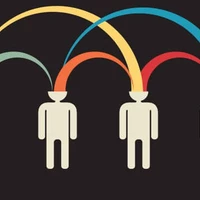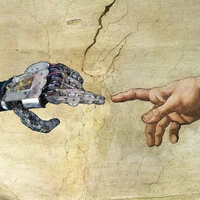Wat gaan robotisering en AI (Artificial Inteligence) betekenen voor organisaties. Een expert panel met als onderwerp ‘Who can beat the bots?’ besprak, op een bijeenkomst van de Rotterdam School of Management (Erasmus University), vragen als:
- Is my job threatened by AI?
- How will my organisation survive?
- How do I remain relevant in the digital workplace?
Hier volgt een samenvatting van de bijeenkomst.
The fourth Industrial Revolution
Klaus Schwab, founder and director of the World Economic Forum: “ … when compared with previous industrial revolutions, the fourth is evolving at an exponential rather than a linear pace. Moreover, it is disrupting almost every industry in every country. And the breadth and depth of these changes herald the transformation of entire systems of production, management, and governance.”
The experts: ‘only the flexible survive’
Both of the experts on the panel, Professor Henk Volberda and Marlies Timmerman, emphasised that flexibility is the key to survival for organisations, their leadership and employees in the current upheavals accelerated by technology.
“Flexible employees are crucial to the success of digital innovations,” said Prof. Volberda. “Employees must become more entrepreneurial, curious and social. They have to invest in the depth and breadth of their knowledge base. They need knowledge from outside of their industry, job, sector … and social skills like creativity and critical thinking are most important.”
‘Organisations must invest in people to profit from innovation’
Professor Volberda noted in his presentation that firms may be underestimating the challenges facing them and that investment in their employees to develop new skills was of key importance. Firms that invest only in new technologies have shown a six per cent decrease in their workforce; while firms that invest in the ‘soft side of innovation’ – people – have experienced an increase of eight per cent in their workforce. “If you don’t invest in human capital, you will see a loss of jobs. But if we really train the employees, adapt organisational structures and facilitate more self-organising teams then you can really harvest a lot from new technologies.”
“Flexible companies dare to embrace talent diversity,” says Marlies Timmerman, CEO of Horizon Training & Development. “In general I see the speed of change is increasing, and the complexity of issues is increasing. Companies and whole industries are looking for the Holy Grail and asking if we [the training companies] have it for them.”
Two presentations
Karen Daleboudt, senior specialist talent and learning, Randstad Group Netherlands:
Message: Effective leadership in the digital age is based on ‘tech + touch’, and the ability to combine both short- and long-term management styles. Tech requires curiosity and a willingness to change, while touch needs passion, creativity and empathy. “On the one hand we invest in all kinds of digital innovations to make our business processes more efficient; on the other we realise that social innovation, touch, is very important.”
Karel Driesse, corporate learning architect ASML:
Message: Gamification can be the right tool for engaging employees in ‘social learning’ and brainstorming.
“The problem at ASML isn’t money, it’s time – we don’t have time to develop trainings because our experts’ agendas are fully packed with work. As a corporate learning architect I look for ways that we can, with digitalisation, speed up knowledge transfer. Instead of sitting in an old-fashioned classroom, how can we speed up the knowledge transfer process for everybody?”
What was the main takeaway of the day for each of the panellists?
Professor Henk Volberda: “What struck me is that at ASML you see the use of new software to help people in this ‘learning game’ – and in the end I think that supports my message of ‘employee first, technology second’.”
Karen Daleboudt: “I think it is ‘entrepreneurship’ and ‘intrapreneurship’ that sticks with me the most.”
Marlies Timmermans: “What strikes me is that there is so much to pay attention to. We need to look at culture, servant leadership, at entrepreneurial attitudes and the ability to learn. Let’s get to it!”
Karel Driesse: “As HR you can push and pull and do whatever you want and at the end you have to listen to the employee. I think if you at least make the employee central and make the environment a place they like to be, things will happen.”
De digitale revolutie is onderdeel van de Parttime Master Bedrijfskunde, Rotterdam School of Management, Erasmus University. Bezoek een voorlichtingsavond voor meer informatie.





Deel uw ervaringen op ManagementSite
Wij zijn altijd op zoek naar ervaringen uit de praktijk, wat werkt wel, wat niet.
SCHRIJF MEE >>
Als u 3 of meer artikelen per jaar schrijft, ontvangt u een gratis pro-abonnement twv €200,--